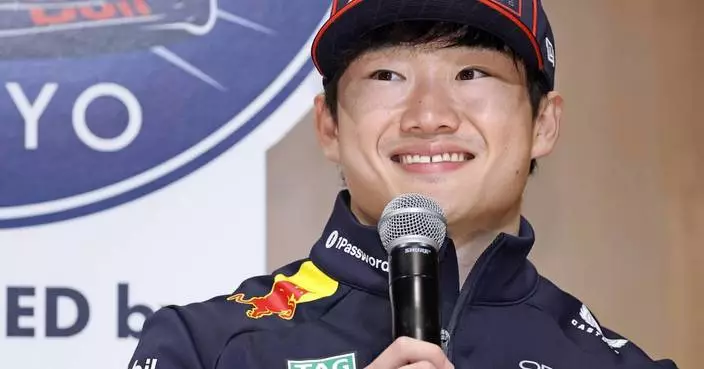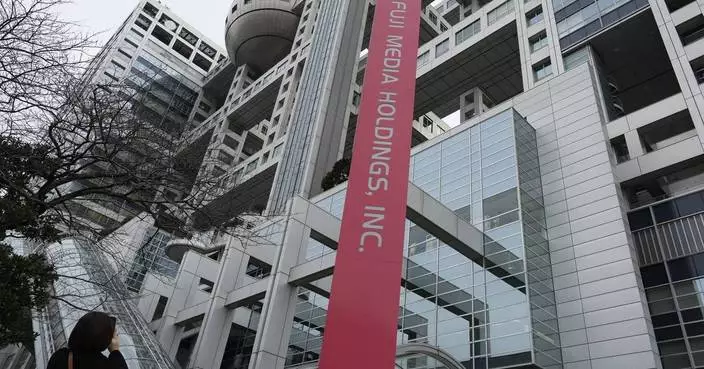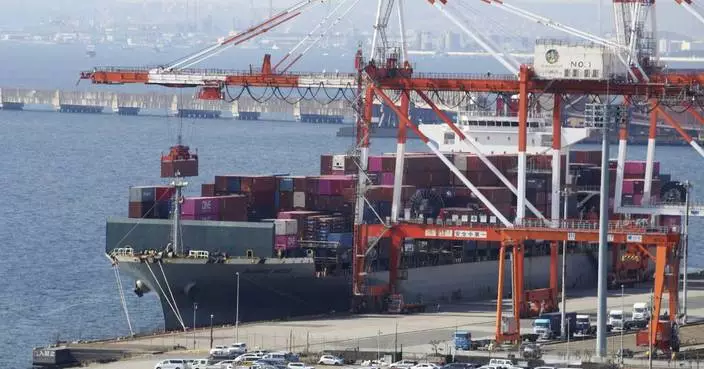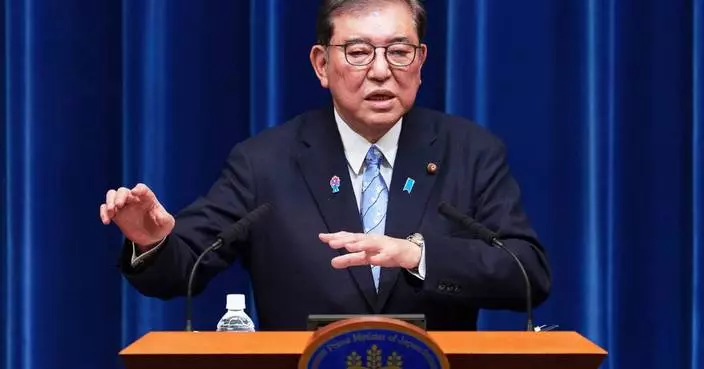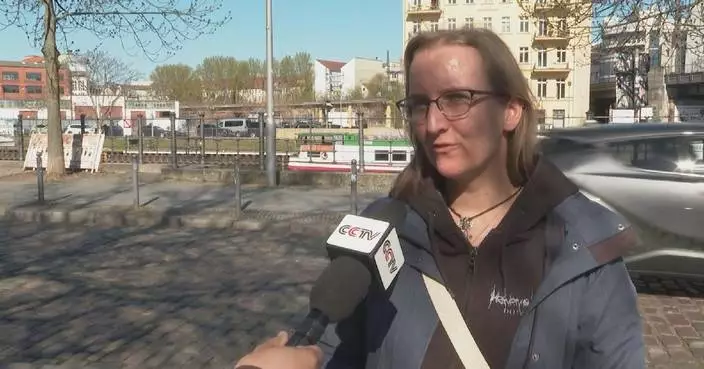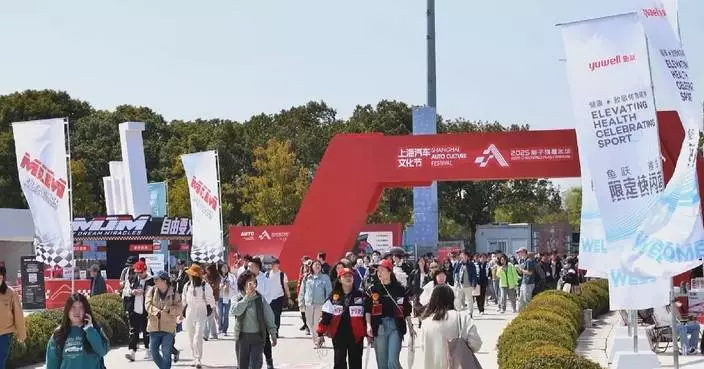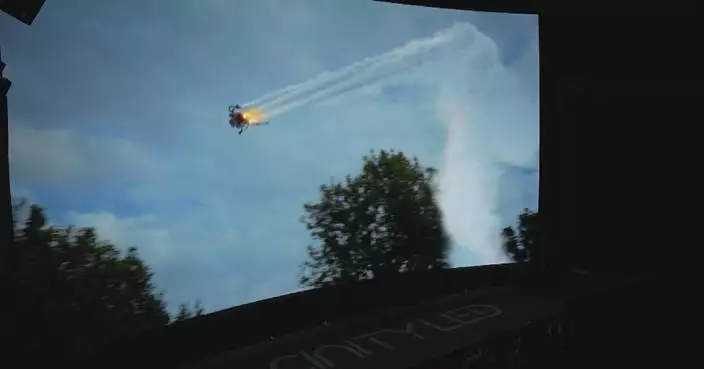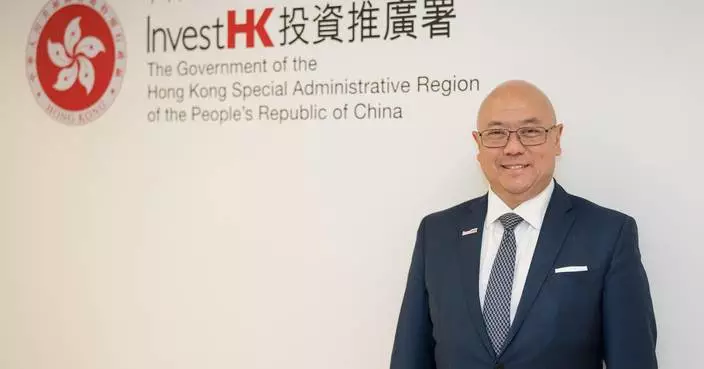After winning two Olympic gold medals, Yuzuru Hanyu wants to master a quadruple axel.
Hanyu, who at the Pyeongchang Games became the first man to repeat as Olympic champion in 66 years, told a news conference on Tuesday he hoped to be the first, or at least one of the first figure skaters to accomplish the 4 1/2 revolutions in competition.
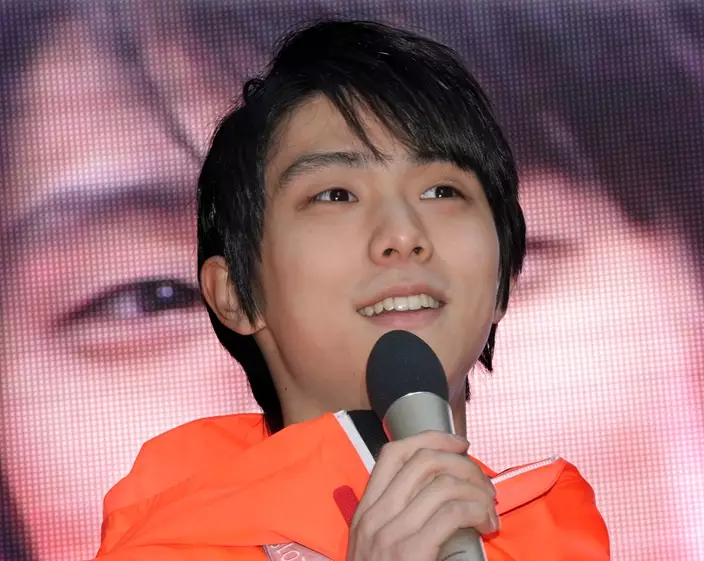
Japanese figure skater and gold medalist Yuzuru Hanyu speaks in Tokyo, Tuesday, Feb. 27, 2018, a day after returning home from Pyeongchang. (AP Photo/Shizuo Kambayashi)
"No one in competition has achieved successful quadruple axel jumps and there are very few people actually practicing even during training," Hanyu said. "I want to continue my challenge towards achieving my dream of successfully performing the quad axel, even if I may not be the first person to do so."
The usually articulate Hanyu struggled with questions at the Foreign Correspondent's Club of Japan, where he was asked to describe how difficult the jump is and to show something of it.
He dropped his head to the podium, and said a quadruple axel is like jumping rope four times while revolving twice with one's eyes closed.
Even though top skaters have achieved success in five of the six quadruple jump varieties, only a few are practicing the more difficult quadruple axel, which requires an additional half-turn, he said.
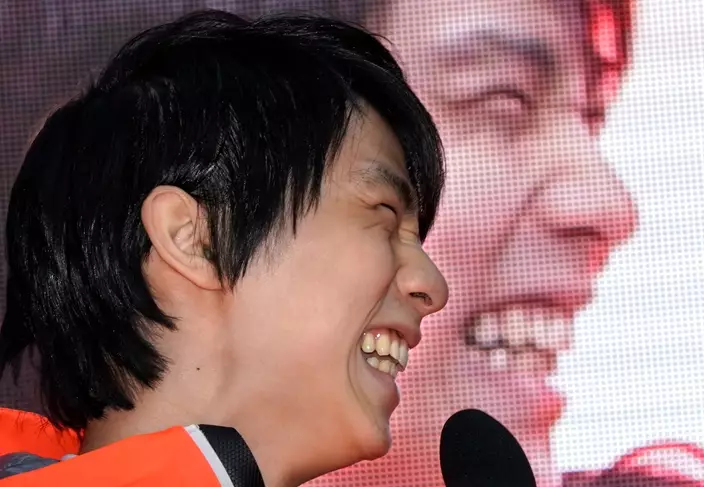
Japanese figure skater and gold medalist Yuzuru Hanyu laughs while speaking in Tokyo, Tuesday, Feb. 27, 2018, a day after returning home from Pyeongchang. (AP Photo/Shizuo Kambayashi)
Asked if he would go beyond that, Hanyu said he was interested.
Scientists say humans can go as far as quintuple, Hanyu said, and his childhood coach is encouraging him to go for it.
"I would like to give it a try in the future, if possible," he said. "A quintuple and half could be beyond my reach though."
He says those difficult jumps add to the artistry of a performance only when performed with excellent basic technique.
Hanyu, who was off ice until January while recovering from a right ankle injury, said his gold medal in Pyeongchang was not easily won. The pain in the ankle was still only "20 to 30 percent" down from the worst.
"I bet my life for this gold medal," the 23-year-old Hanyu, who returned home on Monday, told the packed news conference. "I am alive and here," he joked, "I am not dying."
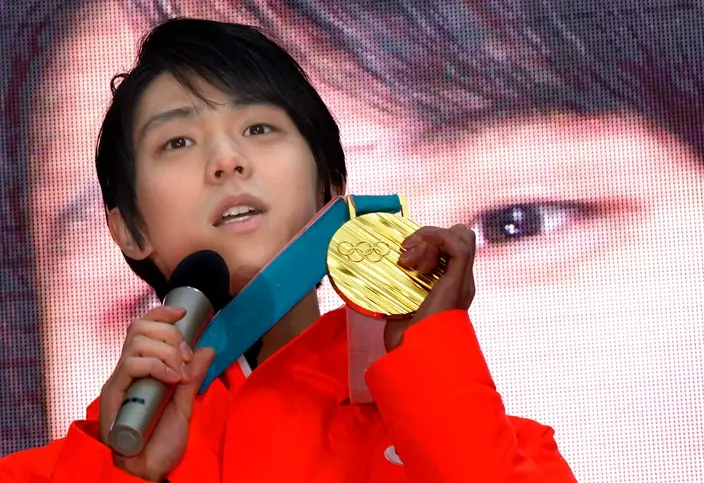
Japanese figure skater Yuzuru Hanyu shows off his gold medal he got in the Pyeongchang Olympics while speaking in Tokyo, Tuesday, Feb. 27, 2018, a day after returning home. (AP Photo/Shizuo Kambayashi)
Hanyu said he was proud to have repeated as champion in a sport traditionally dominated by Europeans.
"I believe it was a historic step forward that I was able to win the gold medal using Japanese music for my program," he said.
Conscious of his Japanese fans, Hanyu said he always eats rice to get energy for competition, instead of bread or pasta. But when he is not competing, he eats like most other youths and says he still stays in shape: "I go to McDonalds, I like carbonated soft drinks, and I even eat potato chips sometimes."
SEOUL, South Korea (AP) — South Korean President Yoon Suk Yeol has been removed from office over his imposition of martial law in December. The unanimous ruling Friday triggers a presidential election to be held in two months that is likely to be one of the tensest South Korea has seen. Yoon also faces a criminal trial on rebellion charges that are punishable by a death sentence or life in prison.
Here is a timeline of events:
According to the criminal indictment, Yoon meets with Defense Minister Kim Yong Hyun to discuss gridlock in the National Assembly as opposition lawmakers use their majority to impeach senior officials and prosecutors and cut government budgets. Prosecutors say Yoon told Kim he wanted to take “emergency measures” against the liberals, something they allege he had been saying for months.
In a surprise announcement televised at 10:29 p.m., Yoon tells the nation he’s declaring martial law, saying the National Assembly has become a “den of criminals” paralyzing government affairs.
Yoon vows to “eradicate” his political rivals, describing them as North Korea-sympathizing “anti-state forces” and “the main culprits of our nation’s downfall.” He doesn’t offer direct evidence to back his claims.
As lawmakers begin rushing to the National Assembly, the military’s martial law command issues a proclamation declaring sweeping government powers, including the suspension of political parties’ activities and other political gatherings that could cause “social confusion” and control over media and publications. It says anyone who violates the decree can be arrested without a warrant.
Hundreds of heavily armed troops encircle the Assembly, apparently to prevent lawmakers from gathering to vote on the martial law declaration, while opposition Democratic Party leader Lee Jae-myung live-streams his journey from a car, calling for people to converge on the parliament to help lawmakers get inside. The shaky footage shows him climbing over a fence to reach the grounds.
Shortly after midnight, National Assembly Speaker Woo Won Shik says on his YouTube channel that the Assembly will respond to Yoon’s martial law declaration with “constitutional procedure.”
Woo reaches the Assembly’s main chamber around 12:35 a.m., as troops break windows to enter the Assembly but fail to reach the main chamber. Woo opens a meeting at 12:47 a.m. to vote on lifting martial law.
At around 1 a.m., 190 lawmakers, including 18 from Yoon’s own conservative People Power Party, vote unanimously to lift martial law. Troops and police begin to retreat from the Assembly shortly after.
At 4:30 a.m., martial law is formally lifted following a Cabinet meeting.
Yoon replaces Defense Minister Kim Yong Hyun, a close ally who had a key role in mobilizing troops to enforce martial law. Han Dong-hun, the leader of Yoon’s party but a factional rival, says he will work to defeat the opposition-led impeachment motion despite criticizing martial law as “unconstitutional.”
In a bombshell reversal, Han supports suspending Yoon’s constitutional powers, saying that the president poses a “significant risk of extreme actions, like reattempting to impose martial law, which could potentially put the Republic of Korea and its citizens in great danger.”
Yoon apologizes and says he won’t shirk legal or political responsibility for declaring martial law. He also says he would leave it to his party to chart a course through the country’s political turmoil, “including matters related to my term in office.” Yoon survives an impeachment vote boycotted by most ruling party lawmakers.
Prosecutors detain former defense minister Kim over his alleged role in planning and executing the declaration of martial law.
South Korea’s Justice Ministry bans Yoon from traveling overseas as investigations into allegations of rebellion and other charges are expanded.
Kwak Jong-keun, commander of the Army Special Warfare Command whose troops were sent to parliament after Yoon declared martial law, tells lawmakers that he received direct instructions from the former defense minister to obstruct them from entering the National Assembly’s main chamber in order to prevent it from gathering a quorum to overturn Yoon’s martial law order.
Kwak says Yoon later called him directly and asked for the troops to “quickly destroy the door and drag out the lawmakers who are inside.” Kwak says he did not carry out Yoon’s orders.
Kim, the former defense minister, is formally arrested over his alleged collusion with Yoon and others in imposing martial law.
South Korean police send officers to search Yoon’s office for evidence related to the martial law introduction but they are blocked from entering the compound by Yoon’s security team.
Police detain the national police chief and the top police officer for Seoul over their roles in enforcing Yoon’s martial law orders.
Yoon defends his martial law decree as an act of governance and denies rebellion charges, vowing to “fight to the end” in the face of attempts to impeach him.
The National Assembly passes motions to impeach national police chief Cho Ji Ho and Justice Minister Park Sung Jae, suspending them from official duties, over their alleged roles in the enforcement of martial law.
The National Assembly impeaches Yoon on a 204-85 vote. His presidential powers and duties are suspended and Prime Minister Han Duck-soo, the country’s No. 2 official, takes over.
The National Assembly votes to impeach Han as acting president over his unwillingness to fill vacancies on the bench of the Constitutional Court.
The Seoul Western District Court issues a warrant to detain Yoon for questioning.
Dozens of investigators arrive at the presidential residence in Seoul in an attempt to detain Yoon, but are blocked by presidential security forces and vehicle barricades.
The chief of the presidential security service, Park Jong-joon, resigns.
The Constitutional Court holds its first formal hearing on Yoon’s impeachment, which lasts less than five minutes because Yoon refuses to attend.
Anti-corruption investigators and police raid the presidential compound and detain Yoon, who is the first sitting president to be detained.
The Seoul Western District Court grants law enforcement’s request for a formal arrest warrant for Yoon, citing concerns he could destroy evidence. His arrest triggers a riot by his supporters, who break into the court, smashing windows and equipment. Nearly 90 of them are arrested.
The Seoul Central District Prosecutors’ Office indicts Yoon on charges of masterminding an attempted rebellion, describing his power grab as an illegal bid to seize the legislature and election offices and arrest political opponents.
The Seoul Central District Court orders Yoon released from detention, citing unresolved issues about whether investigators had the proper authority to detain him. He is released the following day.
The Constitutional Court overturns the legislature’s impeachment of Prime Minister Han, restoring his powers as acting leader.
The Constitutional Court upholds Yoon’s impeachment and removes him as president, forcing an election within 60 days to choose his successor.
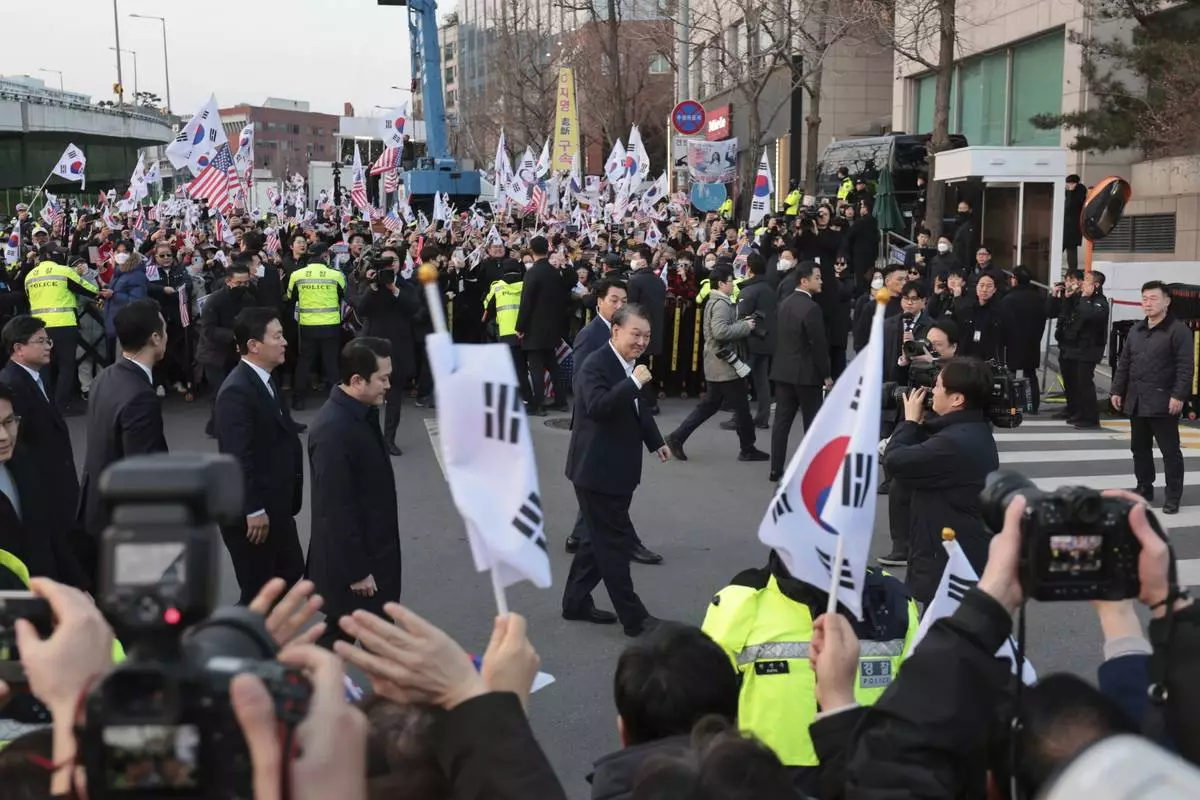
FILE - Impeached South Korean President Yoon Suk Yeol, center, greets his supporters upon his arrival outside of presidential residence in Seoul, South Korea, on March 8, 2025. (Kim In-chul/Yonhap via AP)
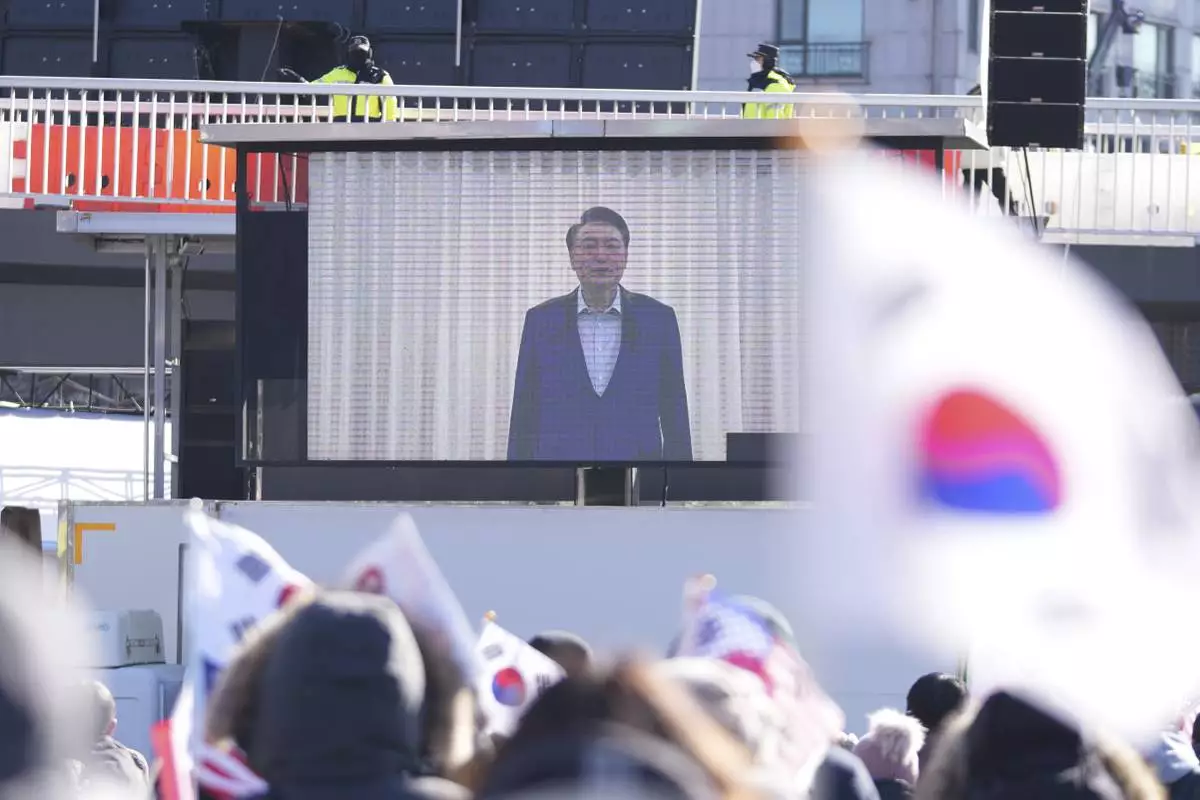
FILE - A huge screen shows a footage of impeached South Korean President Yoon Suk Yeol as supporters stage a rally to oppose his impeachment near the presidential residence in Seoul, South Korea, on Jan. 15, 2025. (AP Photo/Lee Jin-man, File)
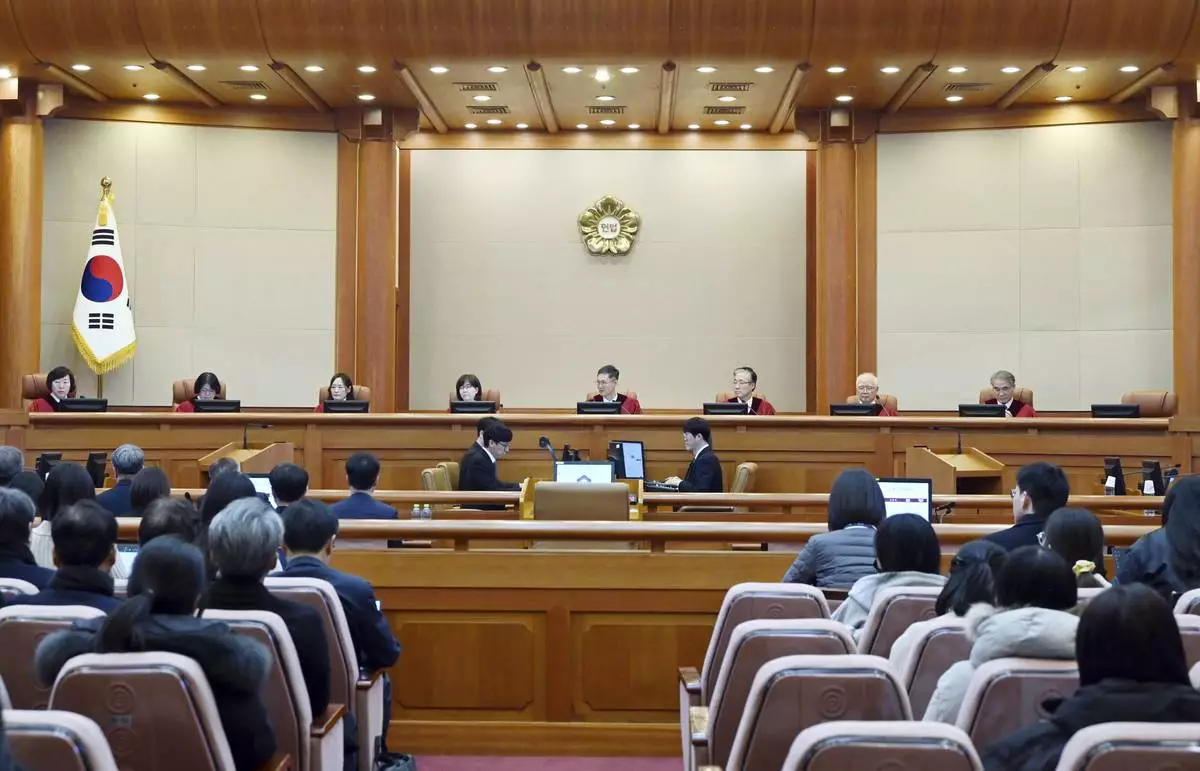
FILE - South Korea's Constitutional Court's judges, from left, Chung Kye-sun, Kim Bok-hyeong, Jung Jung-mi, Lee Mi-son, acting Chief Justice Moon Hyung-bae, Kim Hyung-du, Cheong Hyung-sik and Cho Han-chang sit for the first formal hearing of a trial on the validity of President Yoon Suk Yeol's impeachment by the National Assembly at the constitutional court of Korea in Seoul, South Korea, on Jan. 14, 2025. (Kim Min-Hee/Pool Photo via AP, File)
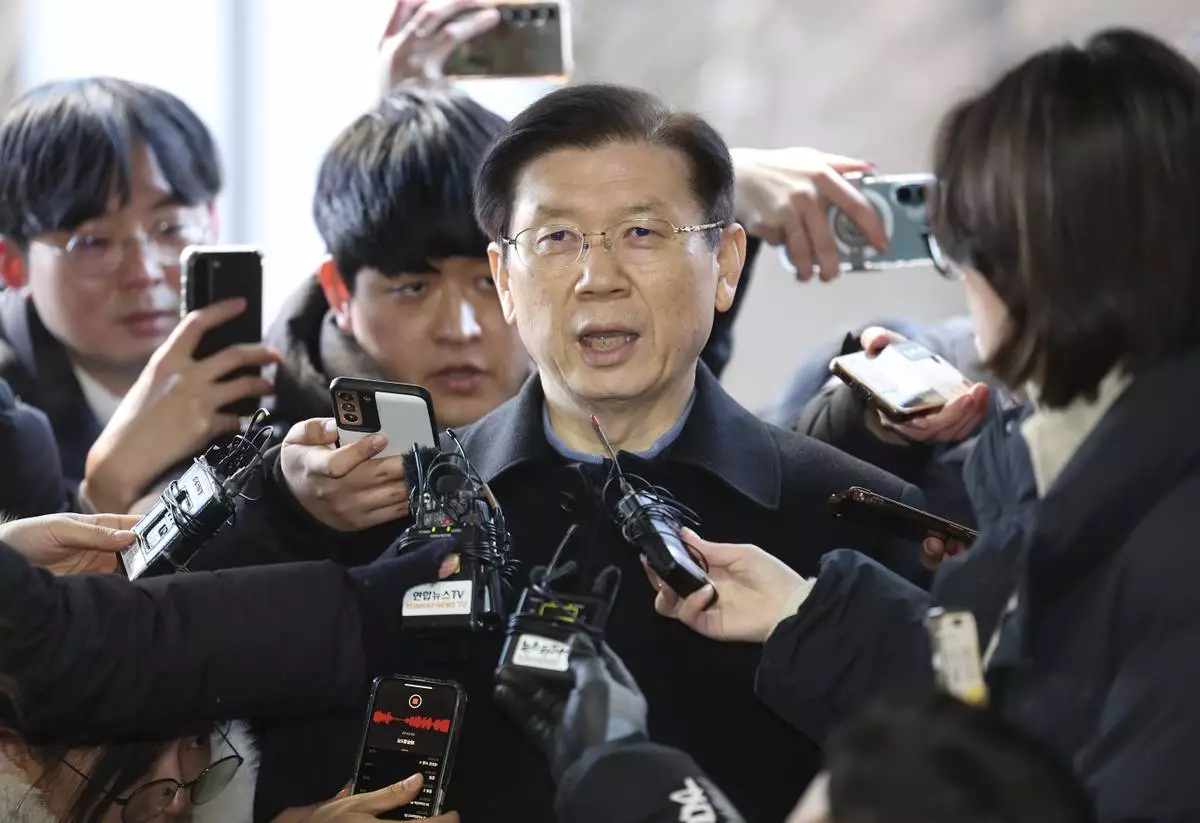
FILE - Park Jong-joon, the chief of the presidential security service, arrives at the Joint Investigation Headquarters in Seoul, South Korea, on Jan. 10, 2025. (Lim Hwa-young/Yonhap via AP, File)
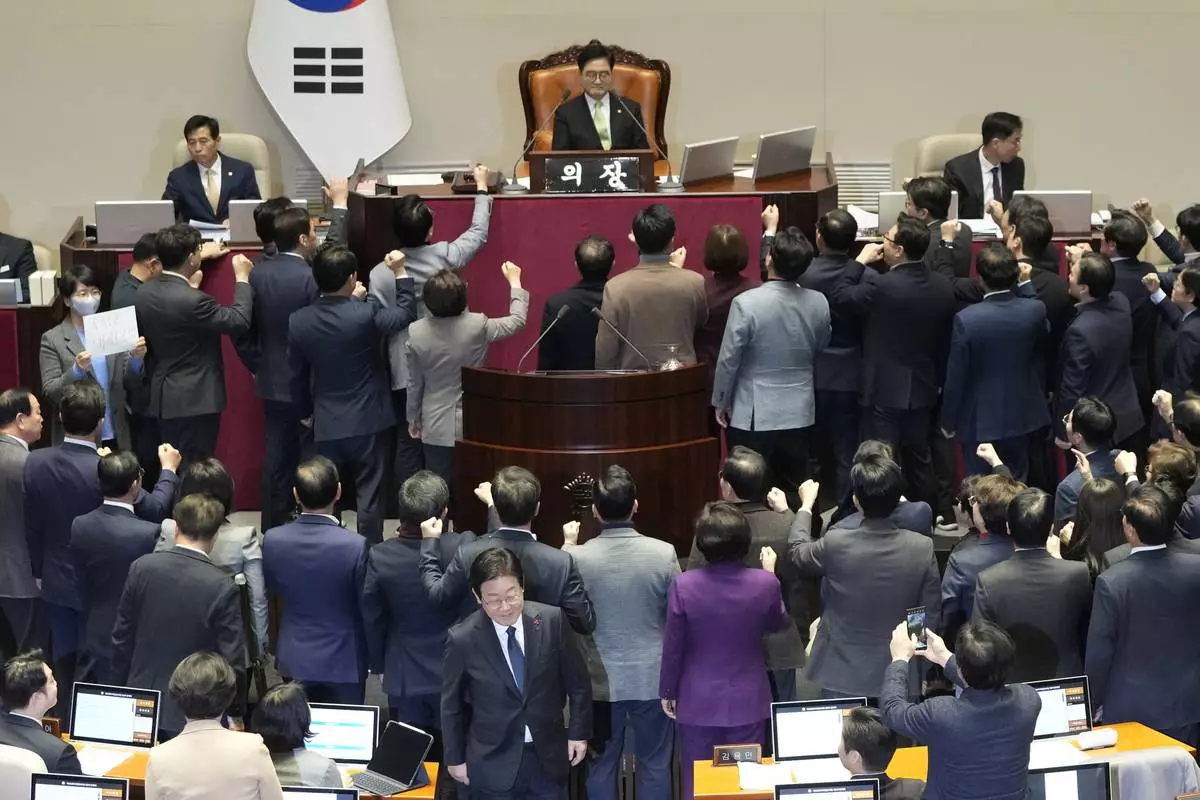
FILE - South Korea's opposition Democratic Party leader Lee Jae-myung, bottom center, walks past lawmakers of the ruling People Power Party protesting to South Korea's National Assembly Speaker Woo Won Shik, top center, during a plenary session for the impeachment motion against South Korean acting President Han Duck-soo at the National Assembly in Seoul, South Korea, on Dec. 27, 2024. (AP Photo/Ahn Young-joon, File)
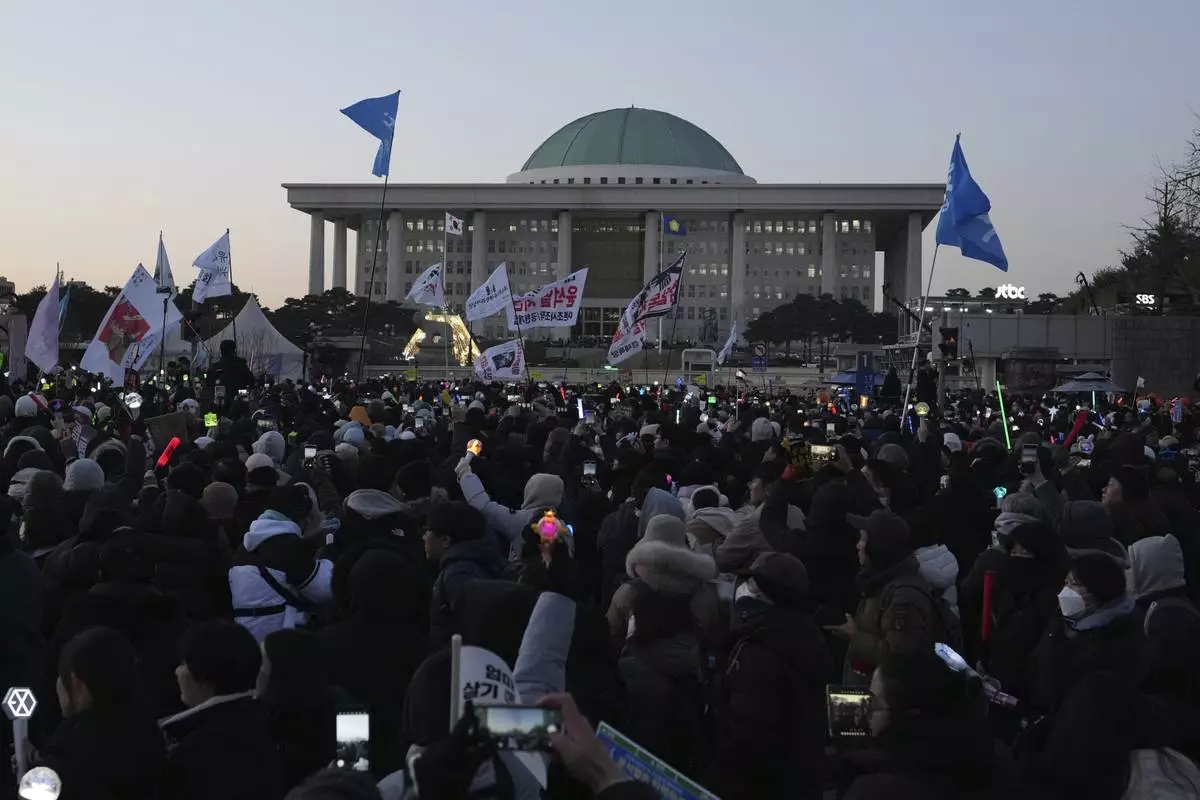
FILE - Participants react after hearing the news that South Korea's parliament voted to impeach President Yoon Suk Yeol outside the National Assembly in Seoul, South Korea, on Dec. 14, 2024. (AP Photo/Lee Jin-man, File)

FILE - TV screens show the broadcast of South Korean President Yoon Suk Yeol's speech at the Yongsan Electronic store in Seoul, South Korea, on Dec. 12, 2024. (AP Photo/Ahn Young-joon, File)
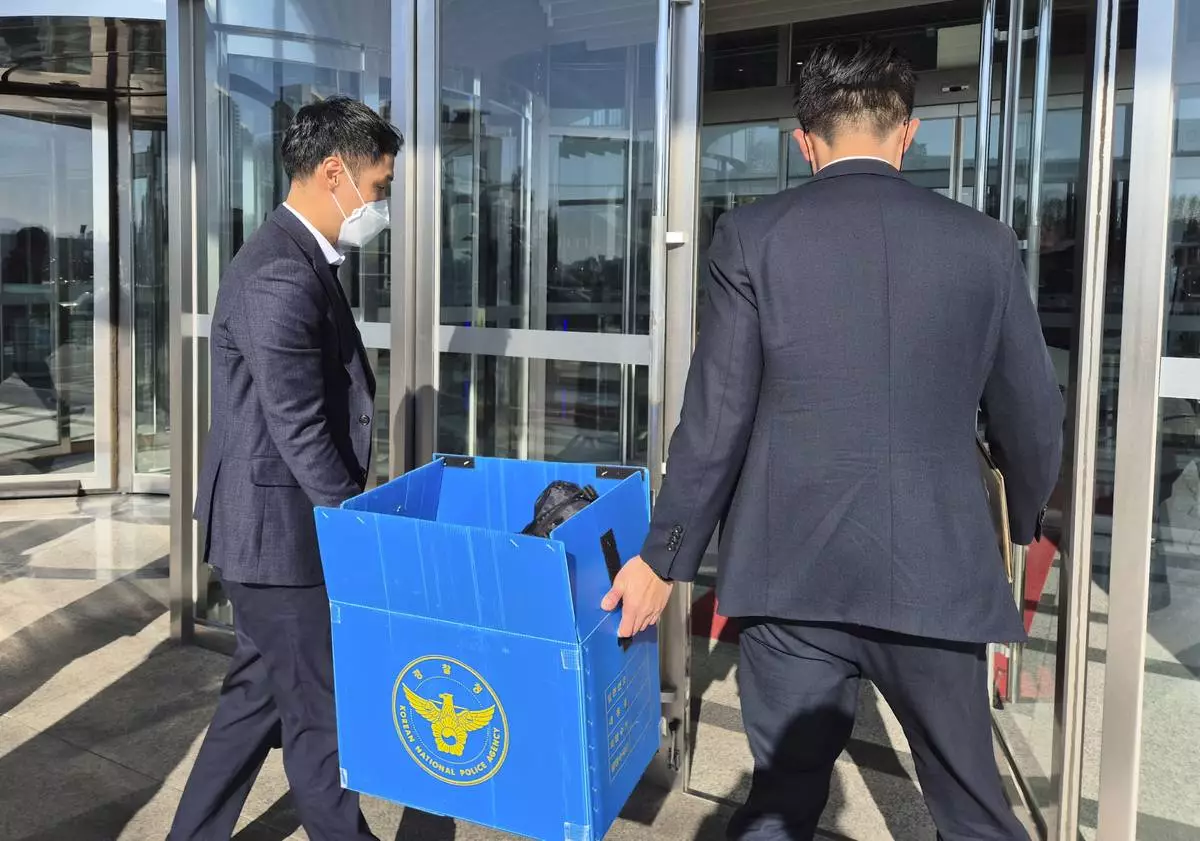
FILE - South Korean police officers arrive for the search and seizure at the office of former Defense Minister Kim Yong Hyun at the Defense Ministry in Seoul, South Korea, on Dec. 8, 2024. (Kim Chul-sun/Yonhap via AP, File)
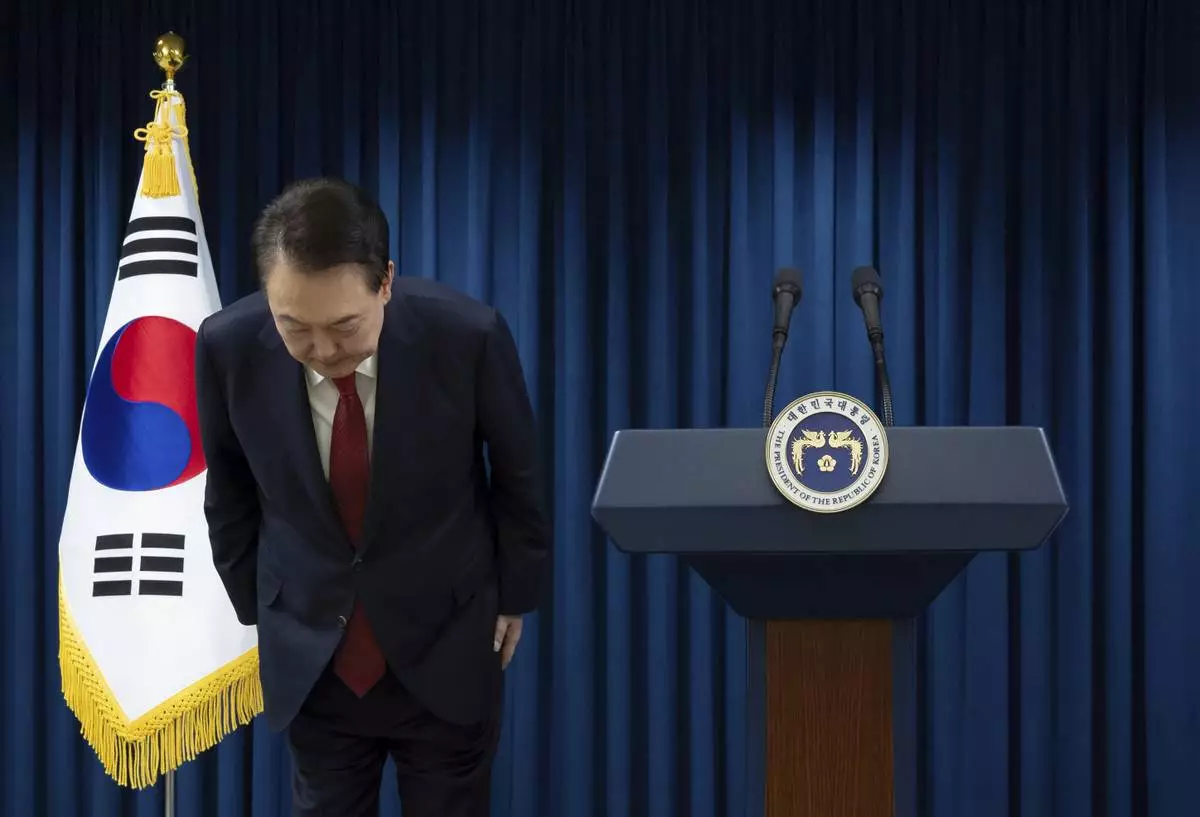
FILE - South Korean President Yoon Suk Yeol bows at the end of his announcement at the presidential office in Seoul, South Korea, on Dec. 7, 2024. (South Korean Presidential Office/Yonhap via AP, File)
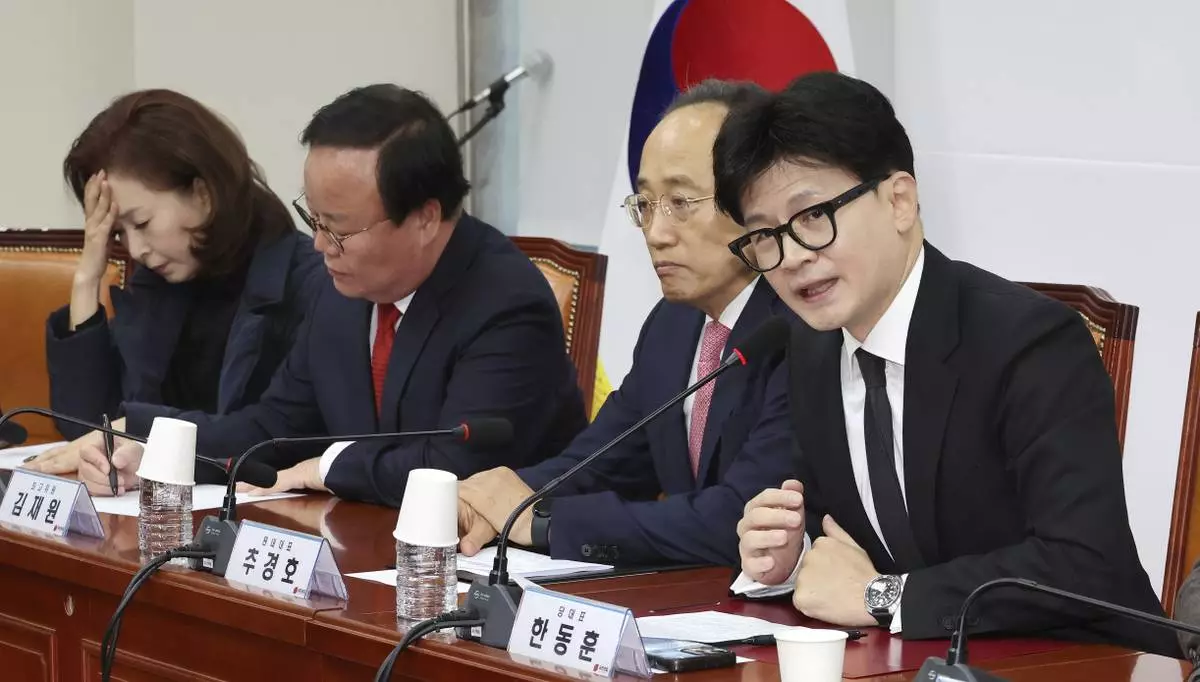
FILE - South Korea's ruling People Power Party leader Han Dong-hun, right, speaks during a meeting of the party's leadership at the National Assembly in Seoul, South Korea, on Dec. 5, 2024. (Kim Ju-hyung/Yonhap via AP, File)
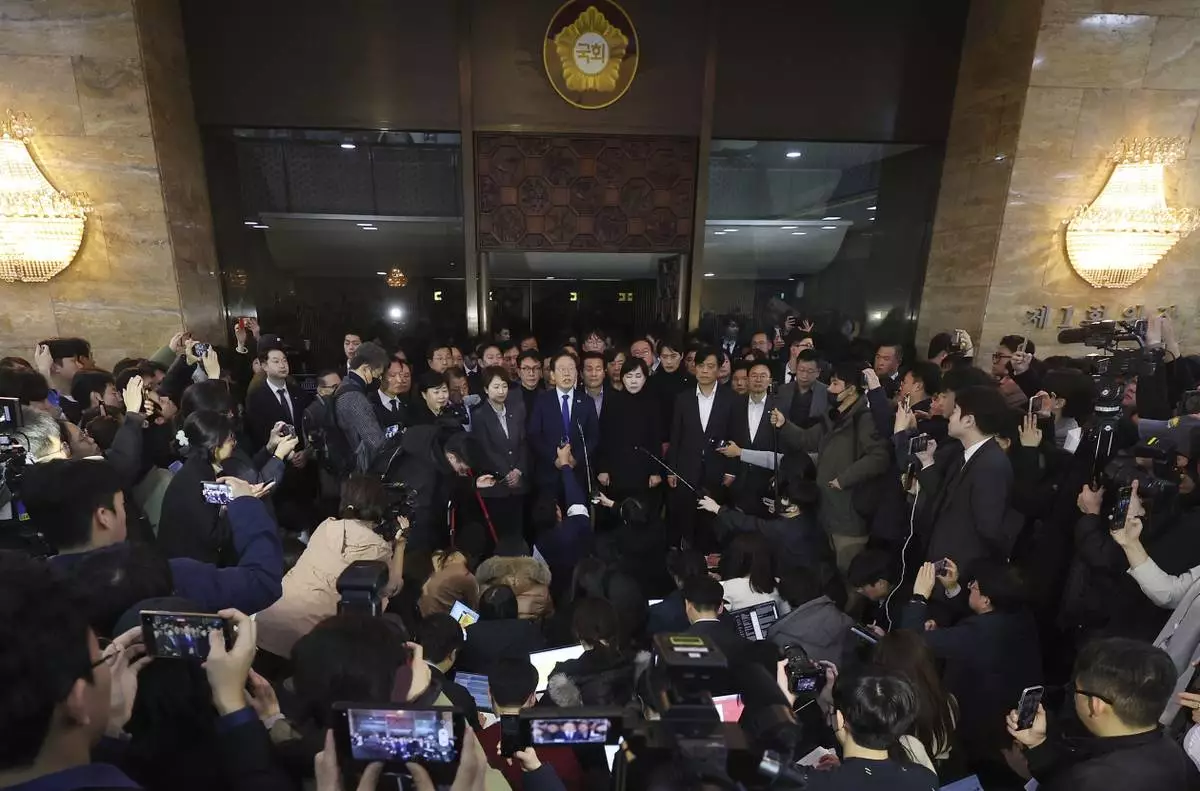
FILE - South Korea's main opposition Democratic Party leader Lee Jae-myung, top center, speaks at the National Assembly in Seoul, South Korea, on Dec. 4, 2024. (Kim Ju-hyung/Yonhap via AP, File)
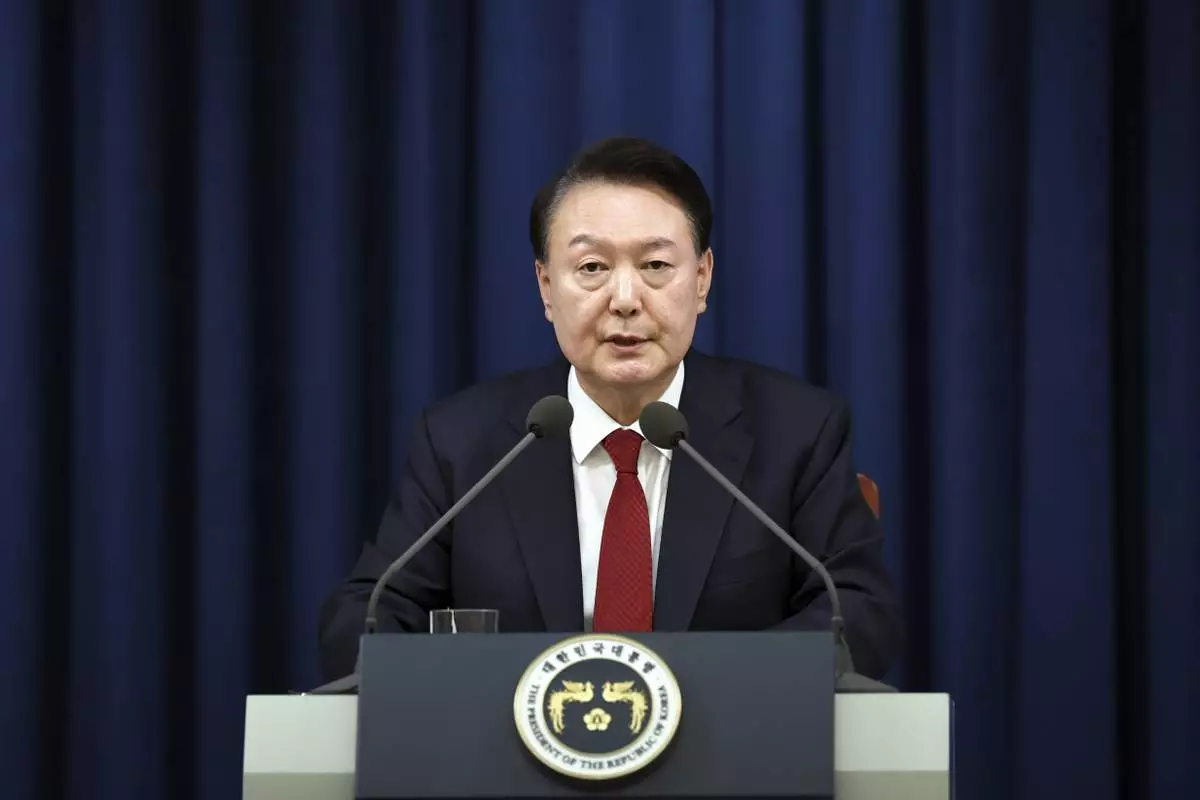
FILE - In this photo provided by South Korea Presidential Office, South Korean President Yoon Suk Yeol speaks during a press briefing at the presidential office in Seoul, South Korea, on Dec. 3, 2024. (South Korea Unification Ministry via AP, File)
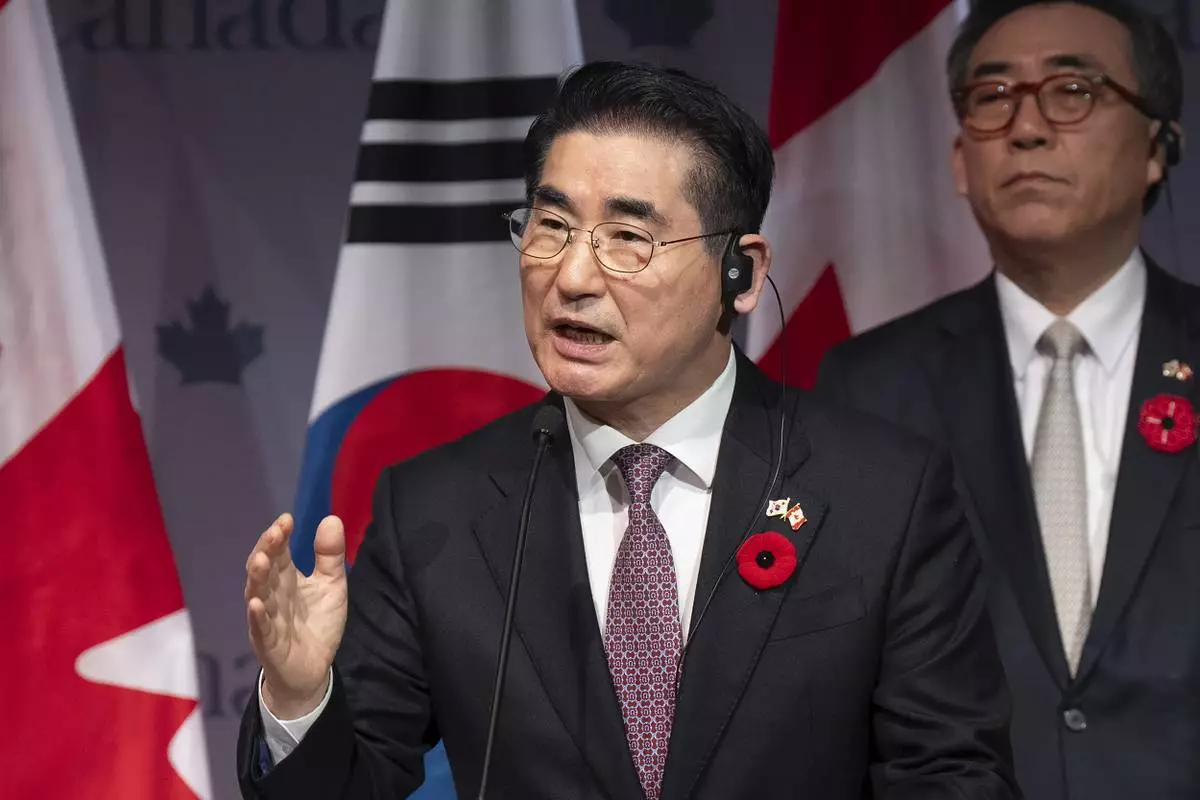
FILE - South Korea's Foreign Minister Cho Tae-yul, right, looks on as South Korea's Defense Minister Kim Yong Hyun speaks during a news conference in Ottawa, Ontario, on Nov. 1, 2024. (Adrian Wyld/The Canadian Press via AP, File)
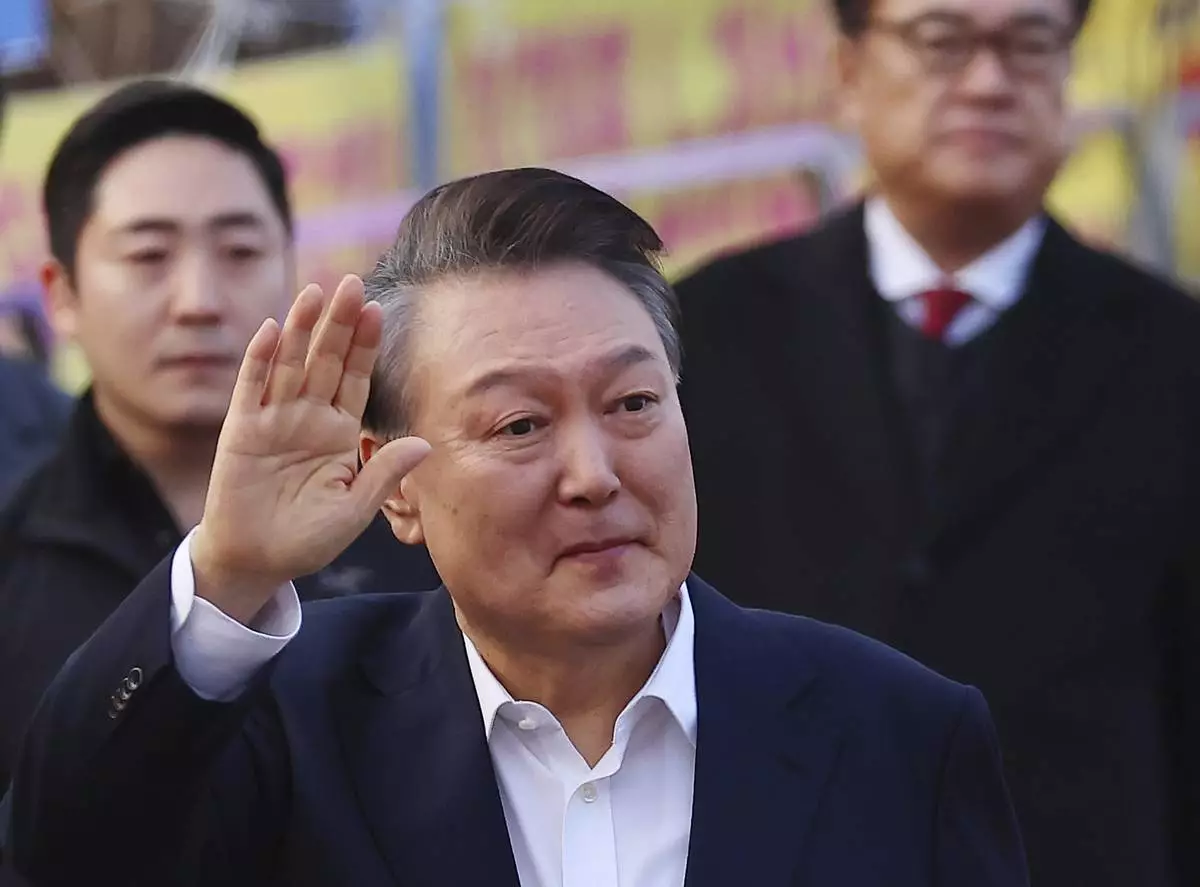
FILE - Impeached South Korean President Yoon Suk Yeol greets his supporters as he comes out of a detention center in Uiwang, South Korea, on March 8, 2025. (Kim Do-hun/Yonhap via AP, File)
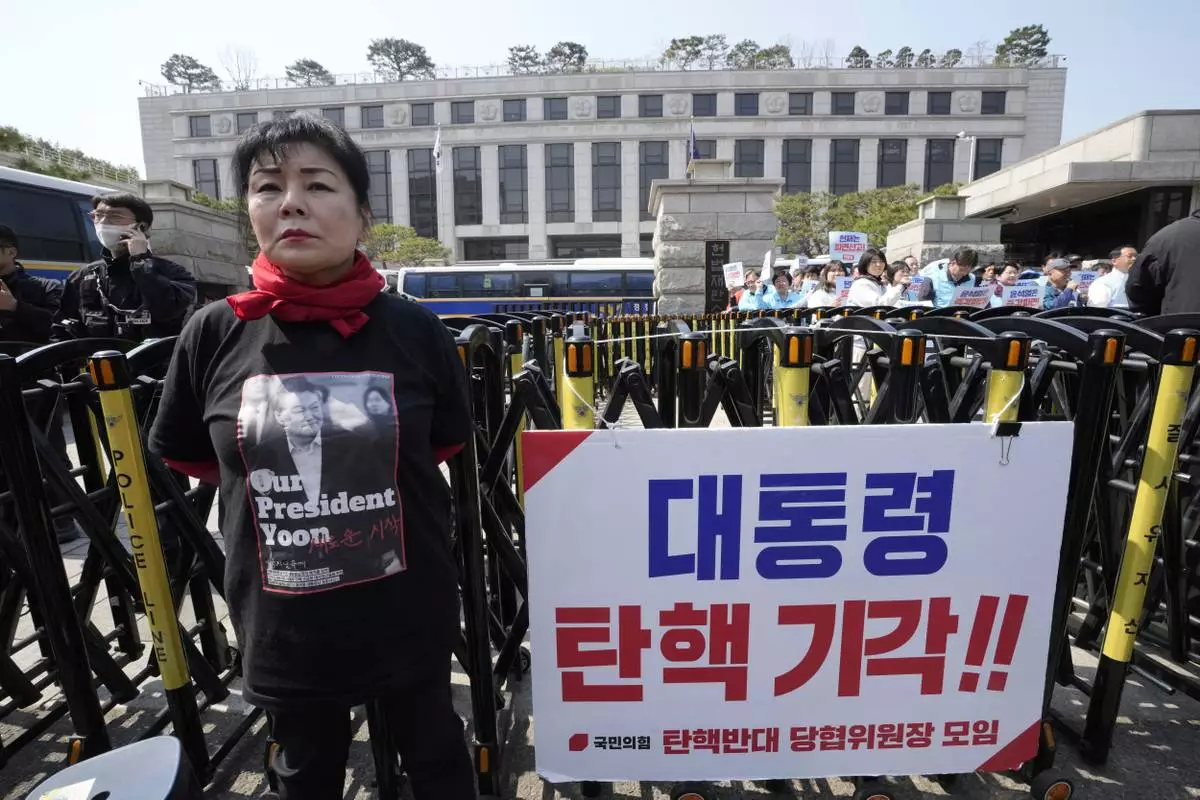
A member of ruling People Power Party stands against impeachment of impeached South Korean President Yoon Suk Yeol in front of the Constitutional Court in Seoul, South Korea, Tuesday, April 1, 2025. The banner reads "Dismiss impeachment." (AP Photo/Ahn Young-joon)
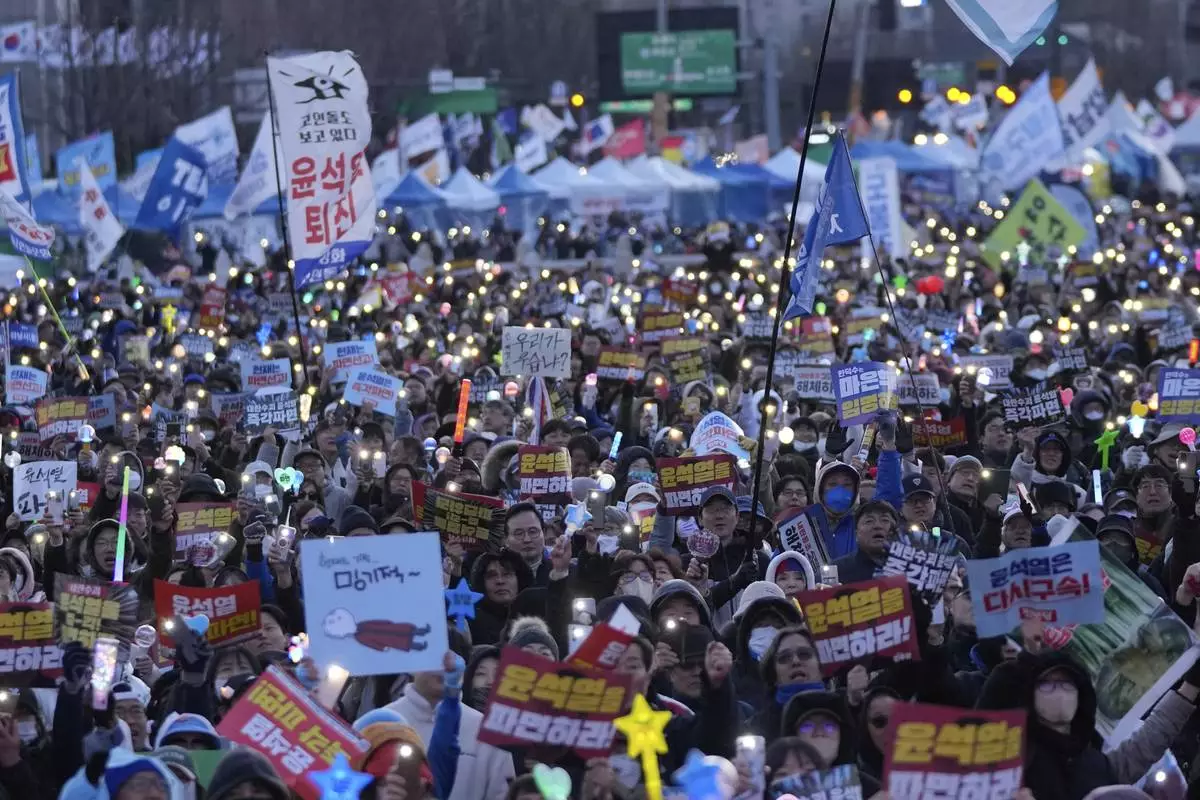
Protesters stage a rally calling for impeached South Korean President Yoon Suk Yeol to step down in Seoul, South Korea, Saturday, March 29, 2025. The banners read "Dismiss Yoon Suk Yeol." (AP Photo/Ahn Young-joon)
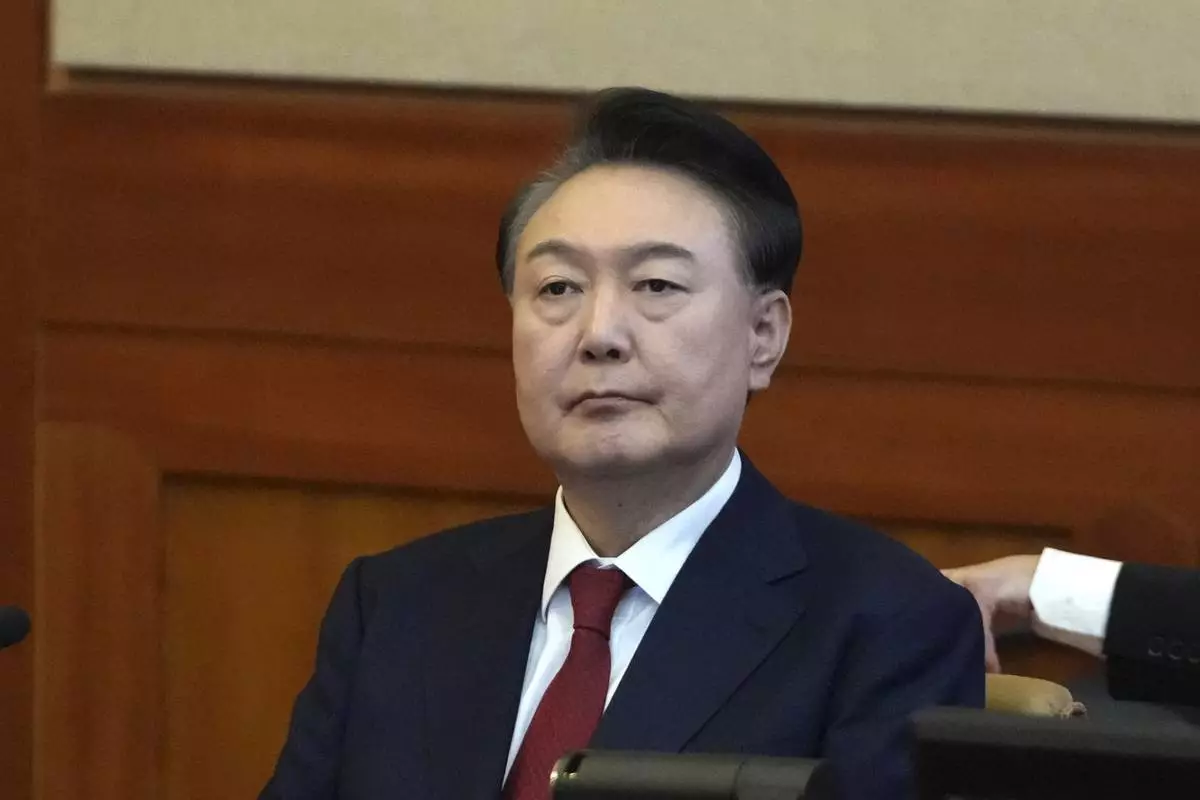
FILE - South Korea's impeached President Yoon Suk Yeol attends a hearing of his impeachment trial at the Constitutional Court in Seoul, South Korea, on Feb. 11, 2025. (AP Photo/Lee Jin-man, Pool, File)























